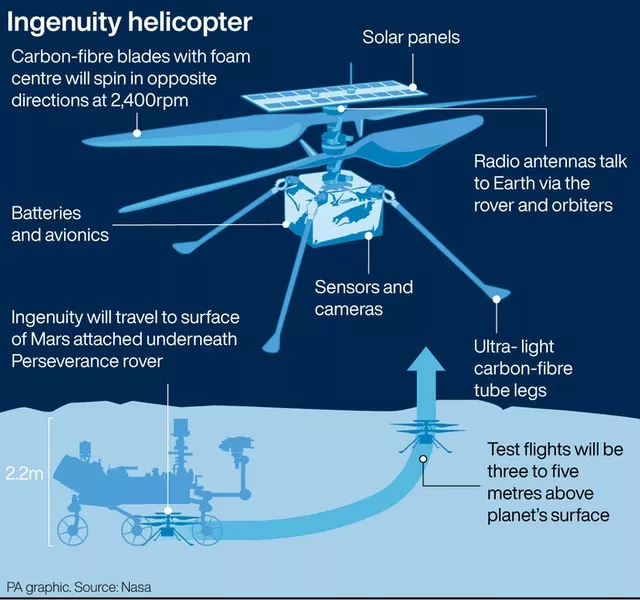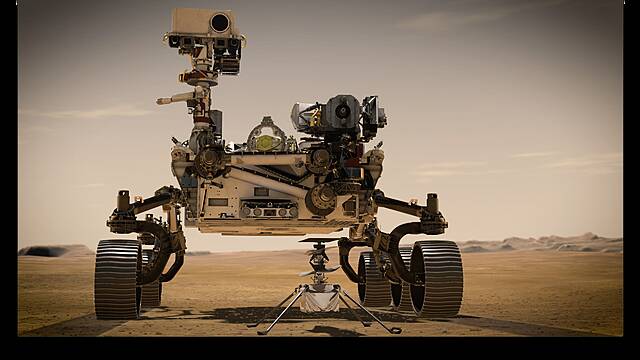The Perseverance rover will lift off from the Cape Canaveral Air Force Station in Florida on Thursday at 12.50pm Irish time aboard a United Launch Alliance Atlas V rocket.
It is the third mission heading to the Red Planet this month after launches by the UAE and China.
Perseverance will travel 314 million miles over a period of nearly seven months attempting to land on a crater named Jezero.
Only eight Nasa missions have successfully pulled off a descent to Mars, a feat that has been described as “seven minutes of terror”.
Satellite images suggest Jezero used to be a lake more than 3.5 billion years ago, when Mars was warmer and wetter.

The crater houses rocks that contain clays and carbonates, which scientists believe may have the potential to preserve organic molecules that could provide evidence of past life.
Along with several sophisticated instruments that will gather information about Mars’ geology, atmosphere, environmental conditions and signs of life, the rover is also carrying a small 1.8kg helicopter.
Called Ingenuity, the copter will fly short distances and marks the first attempt at powered, controlled flight on another planet.
If successful, it could lead to more flying probes on other planets.
Perseverance will also trial technologies to help astronauts make future expeditions to Mars.
I’m helping to pave the way for future human missions to Mars. Learn more about @NASA’s plans for human exploration at 1 pm PT (4pm ET/2000 UTC) on July 28 at https://t.co/yoYs5YcZqr. Use #CountdownToMars to ask your questions. pic.twitter.com/Nn46IMfL7Z
— NASA's Perseverance Mars Rover (@NASAPersevere) July 28, 2020
This includes testing a method for producing oxygen from the Martian atmosphere, and identifying other resources such as subsurface water.
Meanwhile, scientists in the UK will help Perseverance select the Martian samples to be brought back to Earth.
Researchers at Imperial College London and the Natural History Museum will identify samples of Mars that could contain evidence of past life and study the mineralogy and geochemistry of the different rocks found in the crater.
Professor Mark Sephton, from Imperial, said: “I hope that the samples we select and return will help current and future generations of scientists answer the question of whether there was ever life on the Red Planet.
“With one carefully chosen sample from Mars, we could discover that the history of life on the Earth is not unique in the Universe.”
It is also a busy week for Nasa, as it gears up to welcome two astronauts home as they attempt a splashdown off the Florida coast on Sunday.
Bob Behnken and Doug Hurley will arrive in the Crew Dragon spacecraft, called Endeavour, which was designed and built by SpaceX.
The duo will close out a mission that was designed to test SpaceX’s human spaceflight system, including launch, docking, splashdown, and recovery operations, Nasa said.







